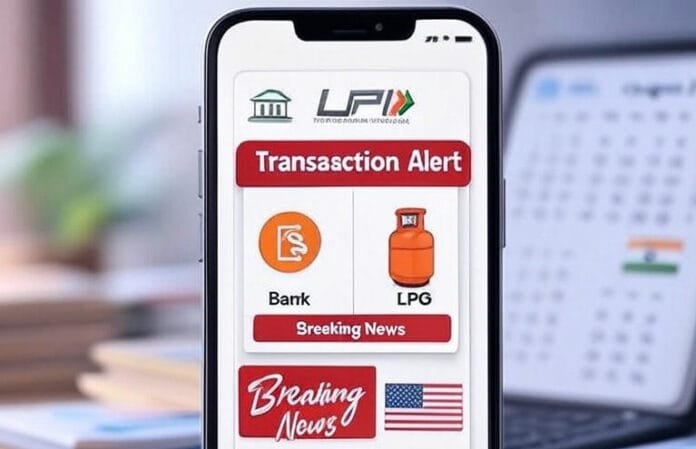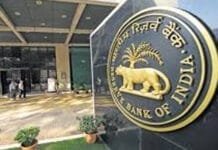The start of a new month often brings policy and regulatory adjustments, and August 1, 2025, is no exception. This month, several significant changes across banking, digital payments, LPG pricing, and international trade have come into force. These updates are not just procedural—they will directly affect your daily finances, business operations, and household expenses. From strict UPI usage limits to a 25% US tariff on Indian goods, here’s an in-depth breakdown of what’s changing and how it impacts you.
UPI Rule Changes: Daily Limits and Timed Autopayments Come Into Effect
India’s widely used Unified Payments Interface (UPI) has undergone some crucial updates aimed at improving system efficiency and user safety. These new norms are effective from today, August 1, 2025.
Daily Limit on Balance Checks and Account Views
UPI users will now be allowed to:
Check account balance only 50 times per day
View the list of linked bank accounts only 25 times per day
These limits are implemented to reduce server loads and prevent bot abuse of UPI services. Businesses and fintech platforms that perform automated checks may need to rework their processes accordingly.
New Autopay Timings for Recurring Payments
Recurring transactions such as:
Loan EMIs
Mutual Fund SIPs
OTT subscriptions (e.g., Netflix, Disney+, Hotstar)
Insurance premium payments
…will now only be processed during non-peak hours. The updated UPI autopay windows are:
Before 10:00 AM
Between 1:00 PM and 5:00 PM
After 9:30 PM
This ensures system stability during high traffic periods and reduces the risk of payment failures.
Limited Attempts for Failed Transactions
In the event of a failed UPI transaction, users will get only three retry attempts, and must wait 90 seconds between each attempt. This rule will encourage more mindful and spaced-out retries instead of rapid, repeated failures.
Mandatory Display of Recipient Name for Every UPI Transfer
A long-requested feature has finally become standard: every UPI transaction must now display the recipient’s name before the user proceeds to confirm the transfer. This is a critical update designed to:
Prevent accidental transfers
Reduce financial fraud
Increase transparency for both sender and receiver
All UPI platforms—PhonePe, Paytm, Google Pay, and others—must comply with this display requirement effective immediately.
Banking Laws (Amendment) Act, 2025 Enforced from August 1
A major legislative reform in India’s banking sector has come into effect as the Banking Laws (Amendment) Act, 2025 is now officially active. The law introduces critical structural improvements across public sector banks and cooperative financial institutions.
Key Provisions:
Enhanced audit oversight in Public Sector Banks
Extended tenures for cooperative bank directors to ensure continuity and governance
Unclaimed dividends, shares, and bond amounts can now be transferred to the Investor Education and Protection Fund (IEPF)
These reforms aim to boost depositor confidence, improve financial transparency, and promote better governance across the banking ecosystem.
Market Repo and Tri-Party Repo Operations Extended by One Hour
The Reserve Bank of India (RBI) has extended the operating hours for both market repo and tri-party repo operations.
New Trading Hours:
From 9:00 AM to 4:00 PM
Earlier closing time: 3:00 PM
This extension aligns India’s trading environment more closely with international markets, giving institutional investors more time to manage liquidity.
No GST on UPI Transactions Above ₹2,000: Relief Confirmed
Contrary to widespread speculation, there is no Goods and Services Tax (GST) being imposed on UPI transactions above ₹2,000. The clarification was provided by Minister of State for Finance Pankaj Chaudhary in the Rajya Sabha on July 22, 2025.
“The GST Council has not recommended any GST on high-value UPI payments,” he stated.
This is good news for users and businesses, especially in the retail and services sector, where UPI is a primary mode of high-value payment.
25% US Tariff on Indian Exports Now Applicable from August 7
While this rule technically kicks in on August 7, its announcement on August 1 has sent ripples across India’s export industry. US President Donald Trump has signed an order imposing a 25% tariff on a wide range of imports from India.
What This Means:
Indian goods like textiles, pharmaceuticals, automotive parts, and electronics are set to become costlier in the US market.
American buyers may prefer cheaper alternatives from other countries due to increased prices of Indian products.
Indian exporters will face margin pressures and possible decline in demand, especially from small and medium-scale enterprises (SMEs) that rely heavily on US business.
Exporters are being urged to diversify target markets and explore intra-Asia opportunities to mitigate risks.
Commercial LPG Price Slashed; No Relief on Domestic Cylinders
Oil Marketing Companies (OMCs) have announced a price reduction for commercial LPG cylinders, effective August 1.
Details:
Price of 19 kg commercial LPG cylinder in Delhi reduced by ₹33.50
New Price: ₹1,631.50 (Previous: ₹1,665.00)
No Change for Domestic Users:
The price of the commonly used 14.2 kg domestic LPG cylinder remains unchanged.
This means no additional relief for household users even as businesses benefit from reduced operational costs.
LPG prices are revised on the 1st of every month, depending on international benchmarks and exchange rates.
Key Takeaways: What You Need to Do Today
With all these updates effective from August 1, here’s a checklist to keep your personal and professional life aligned:
✅ Limit UPI balance checks and plan usage accordingly
✅ Adjust autopay schedules for bills, SIPs, and EMIs as per new windows
✅ Verify recipient names before confirming UPI transfers
✅ Stay updated on mutual fund KYC rules to prevent account restrictions
✅ Businesses should recalculate costs with new LPG rates
✅ Exporters must strategize around US tariffs
✅ PAN-Aadhaar linking deadline is now passed—ensure compliance
✅ Reassess bank relationships in light of the Banking Amendment Act
Conclusion: August Brings a New Financial Chapter
The rules introduced today mark a fundamental shift in India’s digital payments infrastructure, banking regulations, and global trade positioning. Whether you’re a digital-native consumer, a small business owner, or a large-scale exporter, staying informed about these August 1 rule changes is crucial for financial planning, compliance, and strategic decision-making.















